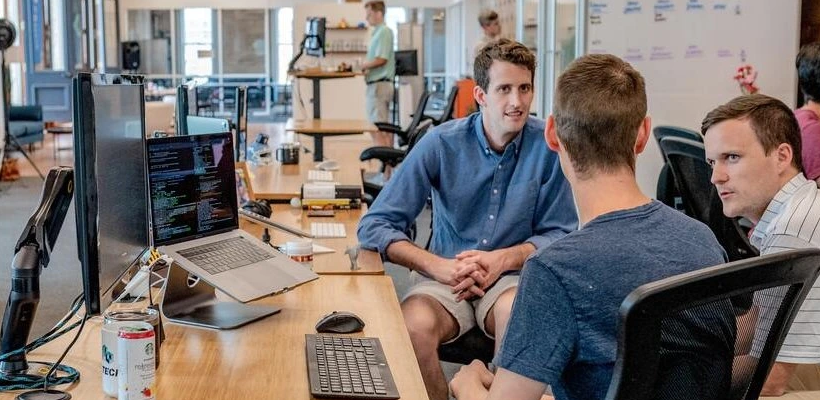This week, in our series of HR expert interviews, I had the pleasure of talking with HR expert Glenn Jones. We discussed his long-lasting career in HR and the experience and knowledge he gained along the way. Glenn is an HR People Director and People Specialist with commercial and operational experience in HR/People, HR/People Shared Services, HR IT, HR/People Transformation, Project Management and coaching. He is also the author of ‘Human Resources Changes the World.’
In this interview, Glenn and I will start by discussing his HR career. We’ll proceed to talk about people transformation, people analytics, and the effects of implementing HR software.
Tell Us a Bit About Yourself. How and Why You Pursued a Career in HR?
I am a freelance HRD/People/HR Consultant since 2011. My experience includes consulting to companies such as Bank of America, HSBC, Ecolab, Imperial Brands, AXA XL and Tesco, mostly global roles. I am a Chartered Fellow of both the CIPD and CIPP, have an MSc in Business and Payroll Management. I am also the author of “Human Resources Changes the World – How and Why HR and HR Directors Should Step-up as Leaders in the 21st Century. Currently, I am also undertaking a DBA in the field of HR. So, to say that I am passionate about the area of People and HR is an understatement.
When I left school at the age of 16 (and yes, there is a story there). At that time I only had one real qualification in Commerce, and I took my first job in Engineering. However, thankfully, the office manager asked me one day whether I would be interested in learning about HR. I looked around the cold garage where I was working. With my hands covered in engine oil and experiencing a loss of sensation in my fingers, I instantly said yes.
Over the years, my career continued to evolve. I became more and more curious about People Function, technology, coaching and development, and processes. My desire was to change the perception of the HR function itself. I purposely kept learning and tried to take the good from every situation that I found myself in. I moved through 18 different sectors and continued to challenge my experience, knowledge and skills along the way.
What Made You Pursue a Career in HR?
I am a great believer in fate. And as you can see from my answer to the first question, I believe it was meant to happen. You can also see how passionate I am about People/HR, and I continue to evolve my capability through daily learning. For my consulting roles that I do, I use everything from HR COO skills through to purist HR, HR Shared Services, Insourcing/Outsourcing, Systems and Technology, CoEs and Payroll. As the roles that I do have also been global, I have been able to work in other countries with globally dispersed teams.
What Do You Currently Do at GGJ Global Consulting Limited?
For most of my time in the last 9-years, I have been utilised by my clients in a turnaround and evolution capacity. This included taking poorly implemented global systems, outsourced provisions to third parties, payroll integrations, change management, contract discussions etc. Each time, I have evolved the client’s issues from bad to good/great, leaving a positive outcome for them. In addition to this, I have always tried to help the internal teams to improve their capability through coaching and or mentoring.
Could You Tell Us More About the Work You Have Done in People Transformation?
Every company that I have worked for or consulted with have been on some sort of transformation journey. However, for the last nine years, most of the transformations have been very extensive. They have looked at Target Operating Models, Culture Change, System/Technology Changes, Workforce Productivity, Lean Processes and Procedures, Enabling employees to do more with technology, improving ease of use and releasing HR teams to focus on the value-added elements of HR.
What Is the Most Important Thing You’ve Learned Through Working in HR?
The most important lesson I’ve learned through my career in HR is that growth and HR go hand in hand. The best and biggest organizations and companies around the world are the ones with a good HR department and effective people strategies.
I qualify this by saying that if employees are indeed the most significant part of every company, then a people-centric function must play a massive role in its ability to be successful, especially as the “war for talent” continues.
Have You Had Any Experience Working With an HR Software?
Yes – my first system/software change was in 1987, and since then, I have always tried to understand both current and future trends in People and HR systems. Once upon a time, I could also write Standard Query Language.
The question of the importance of IT systems in People/Function is a great one. That said, one thing that I see quite often is the assumption that new software will solve all of the People/HR issues under the sun. Technology is a great enabler that I often refer to as the backbone of any change. However, usually what can happen is a lack of focus in the design of new technology especially when it comes to enabling employees to use intuitive systems (design thinking) that release them to do their day job.
What Is Your Experience With People Analytics? How Beneficial Do You Believe It Is in Instigating Positive Change Within Businesses and Amongst Employees?
I love the power of People Analytics, and the answer to your question is yes, it is very beneficial. Sadly though, the main issue that I have seen over the years is generally the skill/lack in People/HR teams to interpret the data into meaningful plans/strategies to act on what the data is stating. Used correctly, People Analytics is a powerful tool for the C-Suite, especially in highlighting trends, areas of focus, talent management etc.
Do You Believe HR Software Is Conducive to Accomplishing the Growth of Businesses? If So, How?
Yes and no – used in the right way, yes. Coming back to my backbone analogy, many other facets need to be focused on too. For example, if a change in the approach is not considered and undertaken well, then the take-up of the technology will below. The C-Suite has to be the one communicating the change, otherwise, it will probably not be adopted. HR software will also not change a company’s culture nor will it change an employee’s mindset from fixed to growth. That said, HR software, as stated before, is a great enabler especially if the new software opportunities are fully utilised. Finally, I believe that implementing well HR software will absolutely contribute to the growth of businesses.


